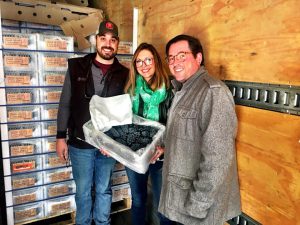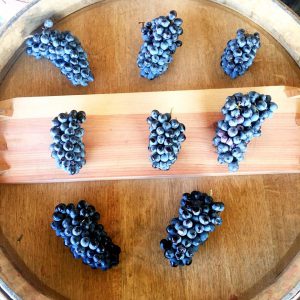Why you’ll love Pinotage! From our grower Grettchen van der Merwe
Why Pinotage rather than other red wines?
Because it is different. Because it is uniquely South African. And because it allows you to strike a blow against the tyranny of the conventional.

The popularity of this variety unique to South Africa has steadily been growing in the US. The 2020 harvest is well underway and the Pinotage destined for US cellars is on its way. After careful vineyard selection the grapes that are deemed worthy are immediately cooled and packed by our friendly pack house ladies.
The attitude of reverence that many people have towards wine is perhaps best illustrated with the above quote. There are surely many reasons for drinking wine and as far as Pinotage is concerned it has many things going for it. For one, and most importantly it is enjoyable. Another is that is it red – somebody once said that the first duty of wine is to be red.

Yeast choice should be primarily based on alcohol and cold tolerance and secondarily on aroma production. Aeration during yeast rehydration is recommended for high risk fermentations (e.g. high sugar concentrations, potential nutrient imbalances and low temperatures). An enhanced estery character, suitable for wines that will be marketed earlier, will develop at fermentation temperatures of 22 – 24ºC. A less estery character, for full-bodied wines that will be marketed later, following wood maturation, is possible at temperatures of 24 – 28ºC. Fermentation at 28 – 32ºC is only recommended for full-bodied wines. Frequent mixing of skins and must by pump-overs or punch-downs is important. Skin cap temperatures exceeding 32ºC could potentially cause stuck or sluggish fermentations, or even bacterial spoilage.

Frequent pump-overs or punch-downs during the early stages of fermentation will give less tannins as well as softer tannins. Concentrated aeration during the last phase of fermentation produces a softer tannin structure. Skin contact towards the end of fermentation or after fermentation depends on the required wine style, but pressing is usually done before completion of fermentation (2 to 8º Balling). Extended maceration is only recommended for wines made from healthy grapes harvested at optimum ripeness and that are destined for further maturation. Sensory evaluation on a daily basis is necessary.
By Grettchen van der Merwe
- To read more about the South African Wine Harvest click HERE.
- For more information about Grettchen and her winemaking click HERE.
- For more information about making Pinotage wine click HERE.
Questions? Or would like to make an order?
Call us at 877-812-1137 or email us at sales@juicegrape.com!





